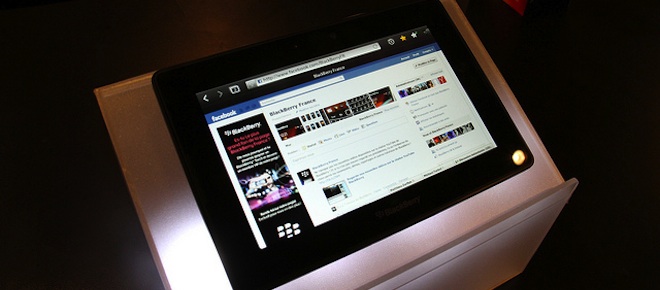RIM’s 16G Playbook destined for the dumpster
Canada’s one-time tech darling says it will still offer 32G and 64G models of its troubled tablet line
Share

Little more than a year after it launched its foray into the tablet market, Research In Motion announced it is getting rid of the 16-gigabyte version of its struggling Playbook.
In a statement e-mailed to several media outlets Thursday, the Waterloo, Ont. company said it will “remain committed to the tablet space” and that it intends to keep selling the 32GB and 64GB models of the PlayBook.
It’s merely the latest bout of bad news for Canada’s one-time tech darling, which is facing sinking sales, a first quarter operating loss and a plunging share price.
It’s now in the midst of a management shakeup and a strategic review by investment banks, including JPMorgan and Royal Bank of Canada that is widely rumoured to be studying a sale.
The PlayBook debuted last April as both RIM’s answer to the Apple Inc.’s iPad and a testing ground for the company’s new QNX operating system that it plans to incorporate into future smartphones.
But it quickly ran into problems, including the fact that users had to tether their Blackberry to the tablet to check their e-mail. RIM also faced stiff competition in the tablet market, not only from the iPad, but also from a growing array of Android-based tablets from companies like Amazon, Samsung and Lenovo.
Facing a backlog of unsold PlayBook inventory that caused it to take a $500 million write-off in December, the company slashed the price of its 16GB PlayBook to $199, a temporary price cut that eventually became permanent.
Sales of the PlayBook rose to 500,000 in the first quarter of this year, but that’s a far cry from Apple, which sold 11.8 million iPads in the first three months of the year, or even Amazon’s Kindle Fire, a tablet/e-reader, which sold 700,000. (Source: Reuters)
But RIM says it has no plans to get out of the tablet market. “We are going to continue to introduce new [tablet] products and we are going to continue to innovate,” a company spokeswoman told the Wall Street Journal.